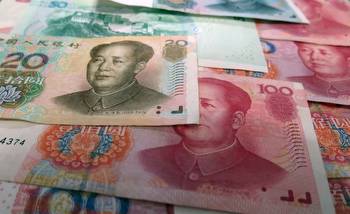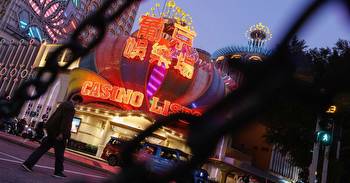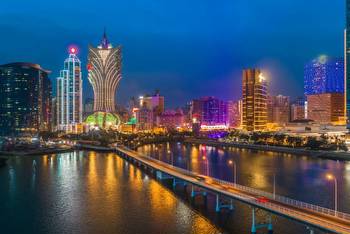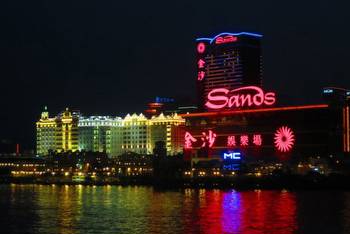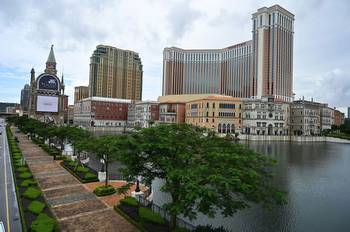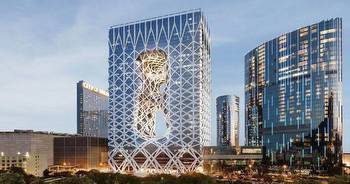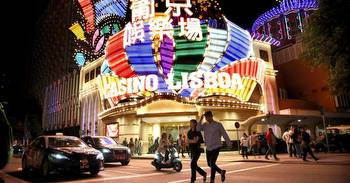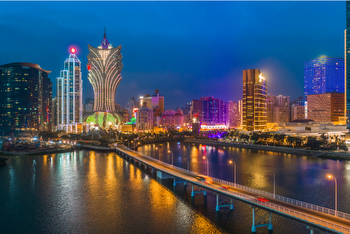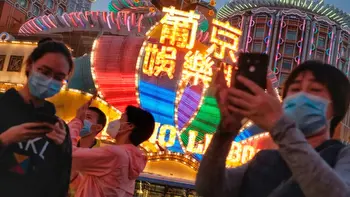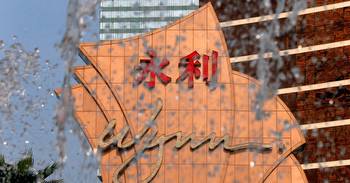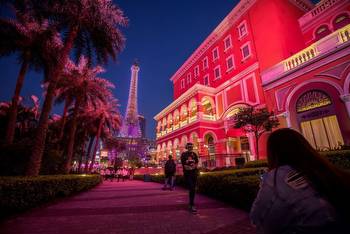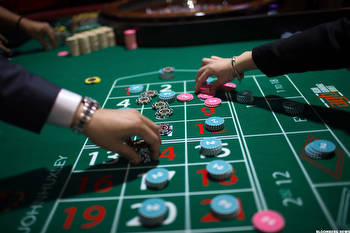Covid-19 has China’s gambling hub on a long losing streak

Business remains muted in the once-bustling casinos of Macau more than a year and a half into the Covid-19 pandemic, while gambling operators wait for tourists to return en masse to the Chinese city.
In August, gross gambling revenue in Macau slumped to the equivalent of $554 million, its lowest monthly total this year and a far cry from the $3 billion pre-pandemic monthly average for 2019. Macau’s August gambling spending also fell by nearly half from July, after a few residents returning from the mainland tested positive for the Covid-19 Delta variant, dealing another setback to the gaming hub’s efforts to recover.
Casinos in Macau—the world’s biggest gambling market by revenue—have been a key revenue source for U.S.-based operators like Las Vegas Sands Corp., Wynn Resorts Ltd. and MGM Resorts International. In March, Las Vegas Sands struck a multibillion-dollar deal to sell its iconic Venetian resort and other Las Vegas assets, staking much of its future growth on its properties in Macau and Singapore.
But the chips have been down for the former Portuguese colony since February 2020, when the city started imposing strict curbs on travelers as the coronavirus was spreading across China, the biggest source of Macau’s high rollers. China has since brought its case numbers down to near-zero, but visitor arrivals to Macau are still far below what they used to be.
On Aug. 24, the Macau government relaxed travel restrictions for visitors from China’s neighboring Guangdong province. Visitors now have to provide a negative Covid-19 test from the prior seven days, rather than the previous 48 hours—a change that could encourage more people to travel. Shares of the U.S.-based casino operators and their Hong Kong-listed units jumped on the news.
For more than a year, China has allowed some quarantine-free travel to Macau, but the gambling hub still maintains tight border restrictions with Hong Kong, which has historically been another big source of tourists.
The recovery of visitation and gambling revenue will be gradual and “normalized activities in Macau could take until 2022 to begin resuming," according to a research note from Jefferies last week.
The slow Macau recovery is in stark contrast to the rebound in the world’s other gambling center, Las Vegas. In Nevada, gambling revenue has surged in recent months—despite the spread of the more contagious Delta variant across the U.S.—due to pent-up demand, increased air travel and fewer pandemic restrictions.
Casino executives say they are confident about Macau’s eventual rebound and have expressed support for the government’s strict Covid-19 responses, which have kept case numbers low. But travel restrictions come at a cost for the casinos.
With a population of 685,000, the gambling enclave has been successful in containing the virus, recording only 63 cases of infection and no deaths, according to government data. Both mainland China and Macau have adopted a zero-tolerance approach toward Covid-19, where even a small number of infections can trigger a rapid and large-scale response. Macau ordered mass testing for its residents in early August after a family of four were infected by the Delta variant.
Before the latest outbreaks posed new threats to the city, there were signs of brighter days to come. The casino hub had a taste of its fitful recovery in May, when a five-day holiday in mainland China drew visitors and gaming revenue climbed 24% from the month before, reaching their highest level since the pandemic began.
In a recent call with analysts, Wynn Resorts Chief Executive Matt Maddox said the company was encouraged by the strong demand seen in Macau over the May holiday period. But, he said, the idea that the so-called VIP segment of customers—the wealthiest high-rolling gamblers—could return to previous levels was “not going to happen."
Wynn Macau said its net loss in the second quarter narrowed to $116.6 million from $352 million a year earlier. Hong Kong-listed MGM China Holdings Ltd. recorded net revenue of $311 million in the second quarter, more than nine times the amount reported a year earlier, but still a 56% drop from the same period in 2019. Sands China Ltd.’s second-quarter loss narrowed to $166 million from $549 million a year earlier.
Casino operators also face lingering uncertainty about the government’s six Macau casino licenses, which are set to expire in June 2022. Casino operators have been awaiting word from the government over how—and when—the new licensing process will take place, in light of the pandemic and local elections in September. The government could delay the process and extend the existing licenses, also known as concessions, according to industry executives and analysts.
China’s sweeping regulatory crackdowns this year have ensnared dozens of internet-technology companies from e-commerce players to ride-sharing businesses, rattling global investors. This week, China released rules banning young people from playing online videogames during the school week and limited play to only one hour a day on Fridays, weekends and holidays.
Macau’s casinos have so far stayed out of regulators’ crosshairs. Still, President Xi Jinping’s anticorruption campaign in recent years has forced Macau to diversify away from high-rollers and orient itself more toward luring mass-market tourists.
Never miss a story! Stay connected and informed with Mint. Download our App Now!!









